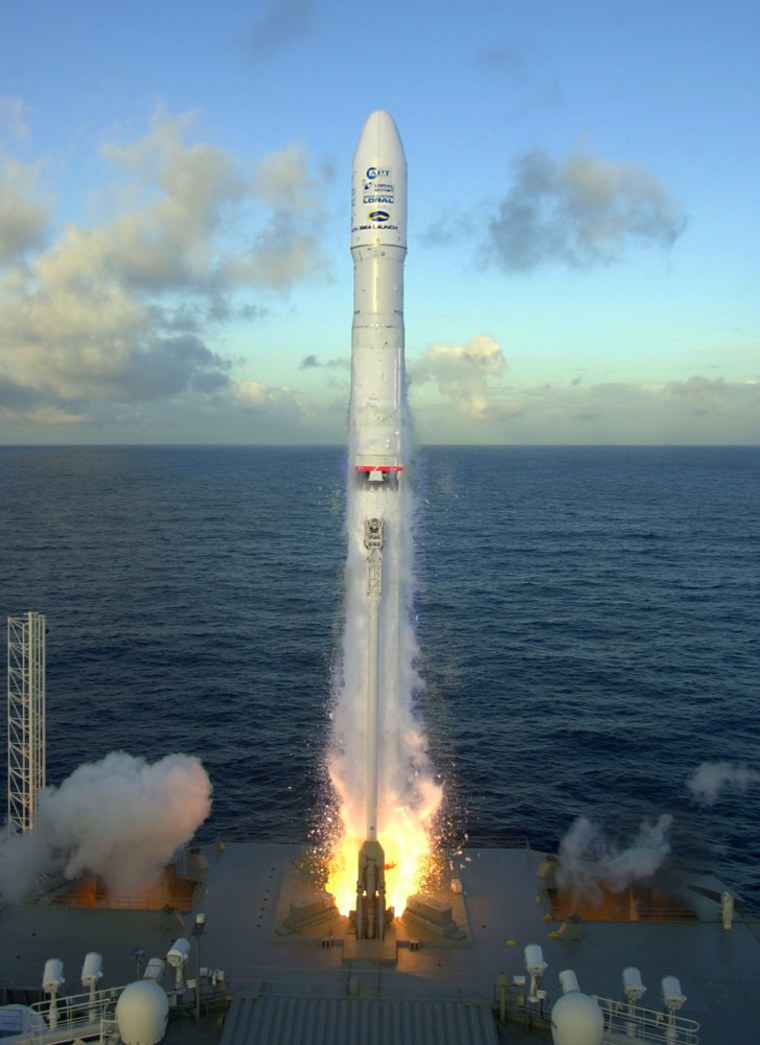A U.S. telecommunications satellite failed to reach its target orbit on Tuesday after blasting off from a platform floating in the middle of the Pacific Ocean, the launch provider said.
But the satellite, orbiting closer to Earth than planned, could still be pushed to the correct position using its own engines, according to Sea Launch, the launch provider, and the satellite’s manufacturer, Loral Space & Communications.
“We were not on target on this one, but all indications are that it’s fine, it has a lot of fuel on board and it is high enough to get to where it has to go,” Sea Launch spokeswoman Paula Korn said.
A rocket booster carrying the Telstar-18 satellite through its final stage to orbit, from which it would provide communications services across Asia, was switched off when controllers found it was not working properly, Russian mission control said.
“At the moment we are analyzing the situation,” mission control said in a statement.
Causes debated
Sea Launch, a Long Beach, Calif.-based consortium led by aerospace company Boeing with Russia’s RSC Energia, Norway’s Kvaerner Group and Ukraine’s Yuzhnoe rocket booster design bureau, said it was too early to say what went wrong.
Loral, which declared bankruptcy last July due to a sharp decline in demand for commercial satellites, said the spacecraft had separated from the rocket prematurely.
“Our folks out there are pretty confident. We are not calling this a failure. It’s up, it’s going to operate properly,” Loral spokesman John McCarthy.
Korn said it was too soon to say whether the current problem could delay Sea Launch’s next mission, its fourth of five planned in 2004, which is slated for late August.
“We’re optimistic that it won’t affect it,” Korn said.
That launch will carry another satellite made by Loral for Intelsat, the No. 2 operator of satellites.
Another launch from Russia
In a separate launch from Russia’s Baikonur cosmodrome in Kazakhstan on Tuesday, a Dnepr rocket -- a Cold War-era missile capable of carrying 10 nuclear warheads, known as “Satan” in the West -- hoisted eight civilian satellites into orbit.
The missile placed one French, one Italian, three Saudi and three U.S. satellites into orbit.
